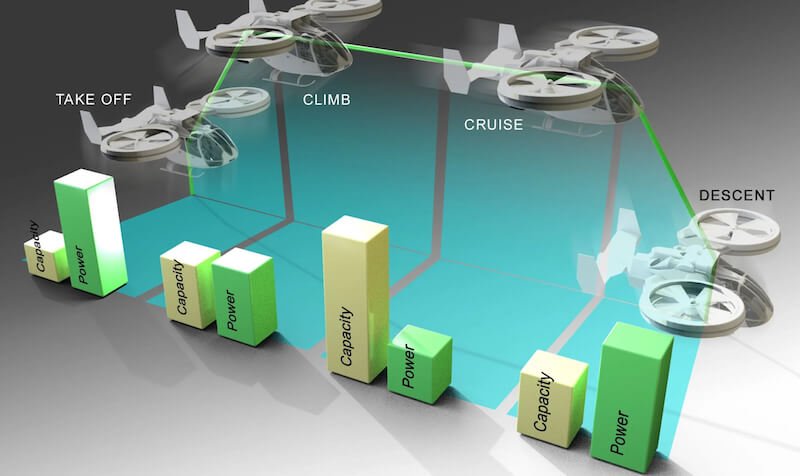
Researchers at Oak Ridge National Laboratory have been working on developing so-called eVTOL batteries for air taxis for some time. Their visions could soon become reality.
In recent years, one topic has repeatedly come into the public eye: air taxis. They are intended to be an alternative to roads clogged with traffic jams and bring passengers comfortably to their destination. The eVTOL vehicles required for this take off and land vertically and therefore do not require any additional infrastructure.
US Department of Energy-supported researchers at Oak Ridge National Laboratory (ORNL) are already working on the next milestone in this area. They have developed battery technologies that are tailor-made for air taxis. Because unlike traditional electric vehicles, they require batteries that can deliver quick bursts of power for takeoff and landing.
eVTOL batteries for air taxis require more power
At the same time, the overall range of the vehicle must not suffer due to the high energy requirement. These requirements have previously made the simple adaptation of electric car batteries impractical. Therefore, the ORNL team focused on developing batteries that can address these specific challenges.
The focus is on energy-dense materials that can store significantly more energy in order to increase the range and performance of the aircraft. It also requires battery control systems that can adapt to the different operating phases of an eVTOL. Finally, the energy requirement decreases drastically after takeoff and increases again when the aircraft lands. An improved electrolyte should therefore keep the battery's capacity high during power-intensive flight phases and be able to react flexibly to loading and unloading.
Flight profiles are intended to improve battery management
Many different parties are involved in the research, such as the US Army Combat Capabilities Development Command Research Laboratory and the Center for Nanophase Materials Sciences. But a soon-to-be first pilot also needs practical data. That's why the teams are working on a controller to link real flight profiles with battery operation in real time. The system is constantly learning about potential flight routes.
The results of the research could form the basis for the next generation of eVTOL batteries, thereby defining safety, longevity and performance in urban aviation. With increasing urbanization and the search for sustainable transportation solutions, eVTOLs offer a promising alternative to traditional modes of transportation.
Also interesting:
Source: https://www.basicthinking.de/blog/2024/04/28/evtol-batterien/


